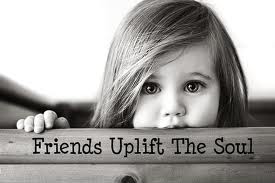Family rituals and routines bring families closer together. As I share stories in the part of my blog called It’s All Bubba’s Fault! you hear a lot about the rituals and routines that have been so important to me and my family over the years. We all have them… Some are funny, some are ridiculous, many are annoying, and others are terribly important and special.
Research has focused on how family routines and rituals
- draw family members together in daily life
- increase contact with family members across generations
- contribute to psychological health and well-being
Rituals and routines are especially important during periods of transition and stress.
Routines
Routines are defined as patterned interactions, occurring regularly on a daily, weekly, or monthly basis, that accomplish a practical goal. (Fiese, 2002)
Characteristics of routines include:
- usually no strong emotional investment in routines
- little thought about them after completed
- ways to get things done
- a means to an end
- can be changed if more efficient or useful ways present themselves
- are usually very important
- represent structure and organization to life, especially during times of transition
- intimate family routines appear to contribute strongly to the predictive power of social status and financial resources
Rituals
Rituals are defined as repeated patterns of behavior that have symbolic meaning for the family.
Characteristics of rituals:
- members invest emotion in rituals and feel a sense of belonging when they carry them out
- recalling the ritual or anticipating it can arouse warm feelings
- not carrying out the ritual can disrupt the cohesive feelings of the family
- are major ways that cultural and ethnic groups pass on their values to the next generation
- include secular or religious holidays, and special family traditions
- encourage communication and increased involvement with other family members
- draw generations close together
- many routines can become family rituals
Family therapist, William Doherty (1997) categorizes rituals in terms of their purpose:
- Connection rituals – promote bonding between family members
- Love rituals – for showing love to each member
- Community rituals – connect family members to the larger community
Doherty (1997) also developed major principles for establishing rewarding family rituals which I think are very helpful:
- Get agreement between adults in the family.
- Have as much participation as possible from all family members in planning and deciding what to do.
- Expect that cooperation from children will emerge slowly.
- Have clear expectations of what will happen and who will do what.
- Reduce conflict through open communication and respect for others’ feelings.
- Protect rituals from the demands of other activities.
Think back to the family rituals from your childhood. Which ones were most meaningful to you? The most enjoyable? Which ones can be useful to you and others during tough times? Which ones do you want to pass on to your children? Which ones do you not what to pass on to your children? Is there a common theme in those you liked and disliked?
Reference:
Brooks, J. (2008). The process of parenting, 7th edition. Boston, MA: McGraw Hill.




